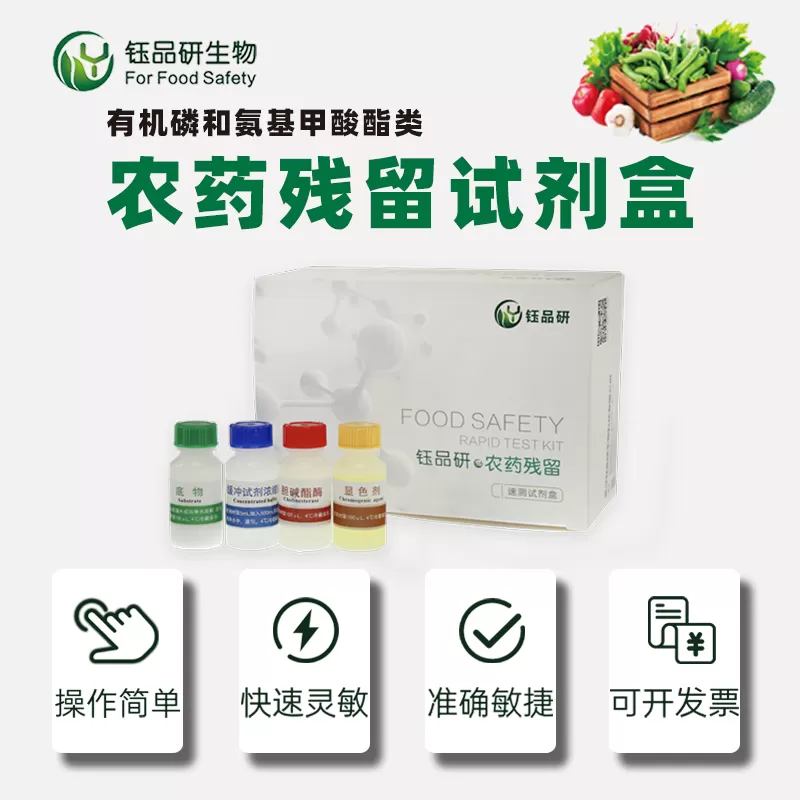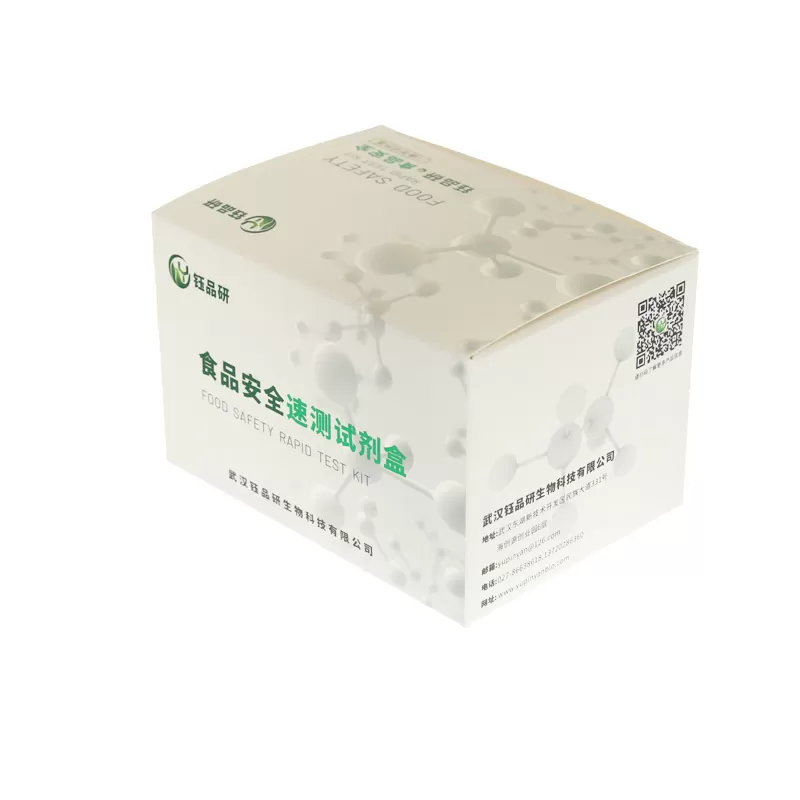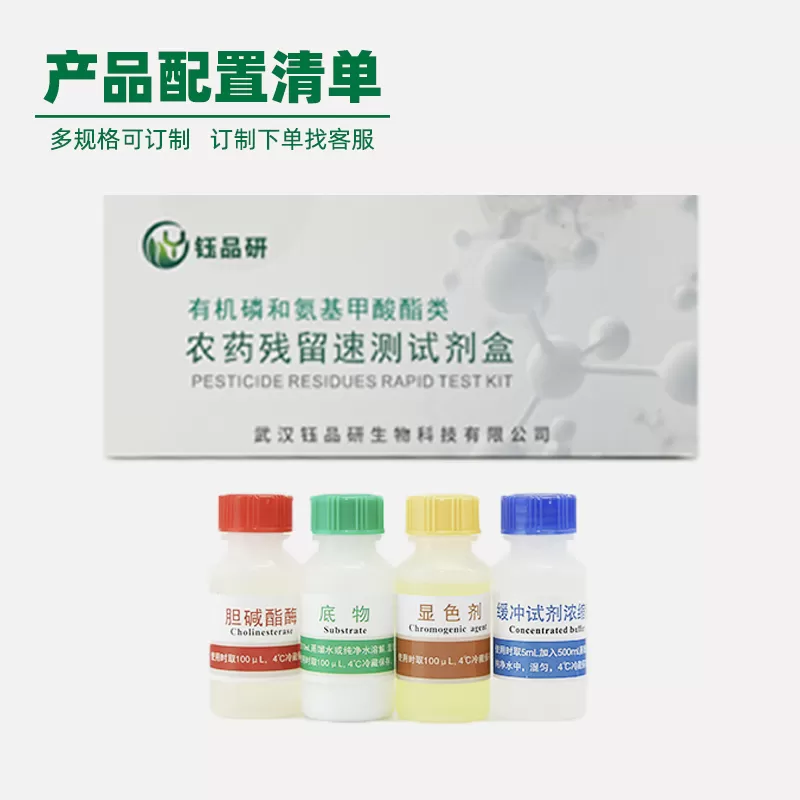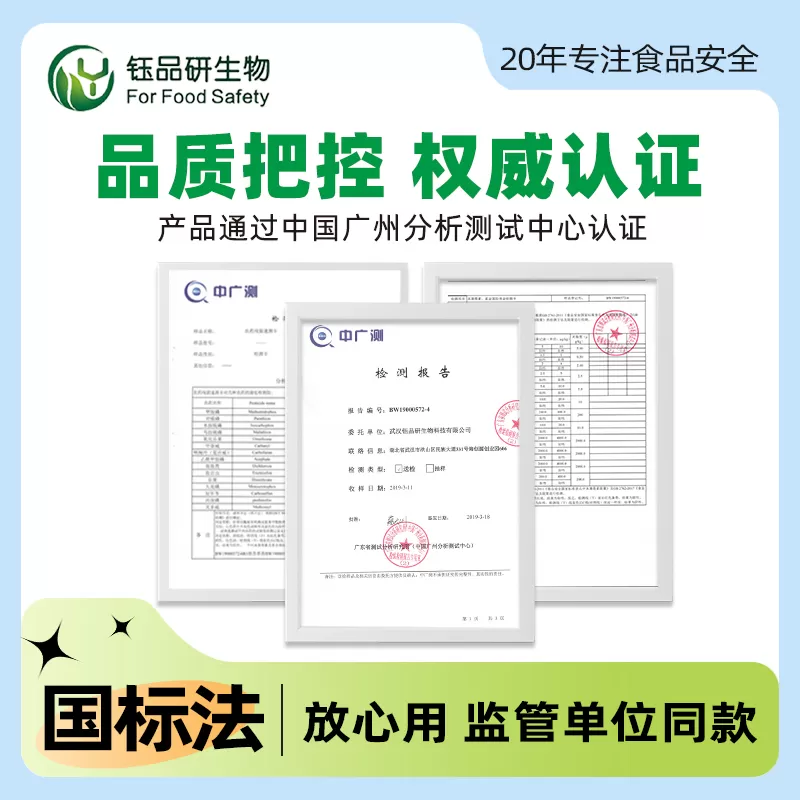(2-In-1) organophosphorus and carbamate pesticide residue rapid test kit instruction manual
product number: YA005C05H
[Scope of application]
The product is based on the national standard GB/T 5009.199-2003 detection method, which is suitable for the detection of organophosphorus and amino
carbamate pesticide residues in fresh vegetables.
[Reagent preparation and storage]
1, cholinesterase: take 100 μL directly when using, refrigerate at 4 ° C;
2, substrate color developer: take 100 μL directly when using, refrigerate at 4 ° C.
[Sample extraction]
Select representative vegetable samples, wipe off the surface soil and other debris and then sample;
Leaf vegetables generally take samples from the tip of leaves of different plants, and fruit vegetables are sampled from the epidermis of different individuals.
Leaf vegetables Take 3 g of leaf tip part in the sample cup, add 10 ml of purified water, shake for 1 minute, let stand for 2 minutes, take
clear liquid or filter with filter paper to be tested.
Stems and fruits Take 3 g of epidermis in the sample cup, add 10 ml of purified water, shake for 1 minute, let stand for 2 minutes, take
supernatant or filter with filter paper to be tested.
vegetables that are prone to interference (scallion, garlic, radish, chives, celery, coriander, bamboo shoots, mushrooms, tomato juice, potatoes,
peppers, dark fruits and vegetables, etc.) do not need to be peeled or shredded, directly take the whole into a cup/bowl, add 10 ml of water, rinse
repeatedly, and take the supernatant for testing.
[Control test]
Add 2.5 mL of purified water and 100 μL of cholinesterase in a reaction tube, mix well; after 10 minutes, add
into 100 μL of substrate color developer, mix well and immediately pour into a cuvette, and use a pesticide residue detector for control test.
[Sample test]
Add 2.5 mL of solution to be tested and 100 μL of cholinesterase in another clean test tube, mix well; after 10 minutes,
add 100 μL of substrate chromogenic agent, mix well and immediately pour into a cuvette, and use a pesticide residue detector for sample testing.
Operation Tip: In the process of adding substrate chromogenic agent, the substrate chromogenic agent can be added to the cuvette in advance. After 10 minutes
minutes of reaction, immediately pour the reaction solution in the test tube into the cuvette with the substrate chromogenic agent, and quickly put it into the instrument detection channel for
test, which can reduce the error caused by the addition of substrate chromogenic agent for too long when simultaneously detecting multiple samples.
[Results Determination]
According to the national standard GB/T 5009.199-2003 method, if the test result is positive when the inhibition rate is 50%, it means that there is a high dose of
organophosphorus or carbamate pesticides in the vegetables. For samples with positive results, the test needs to be repeated more than 2 times. If necessary,
can be further determined by other methods. Specific pesticide varieties and content.
[Precautions]
1, enzyme activity requirements: the normal activity of the enzyme in this kit is A00.3, which meets the requirements of the national standard method;
2, storage: the kit should be stored in the refrigerator at 4~ 8 ° C, with a shelf life of 12 months.
3, use: any reagent should follow the principle of using a bottle to prepare a bottle, shake well before use, and use the new reagent after use to prevent the deterioration of
.
4, the principle of reagent only out of the bottle: the reagent sucked out from any reagent bottle is prohibited from being poured back into the bottle again to avoid cross-contamination.
5, the influence of ambient temperature on the test: when the ambient temperature is lower than 20 ° C, the necessary thermal insulation measures need to be done when the reaction is 10 minutes, and the product
needs to be restored to room temperature after being taken out of the refrigerator.
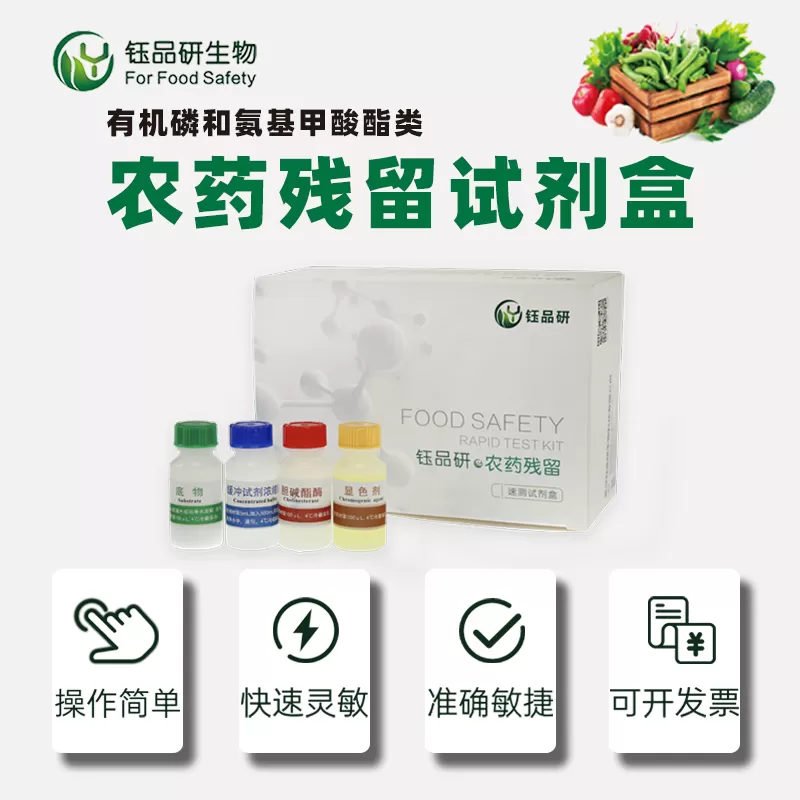
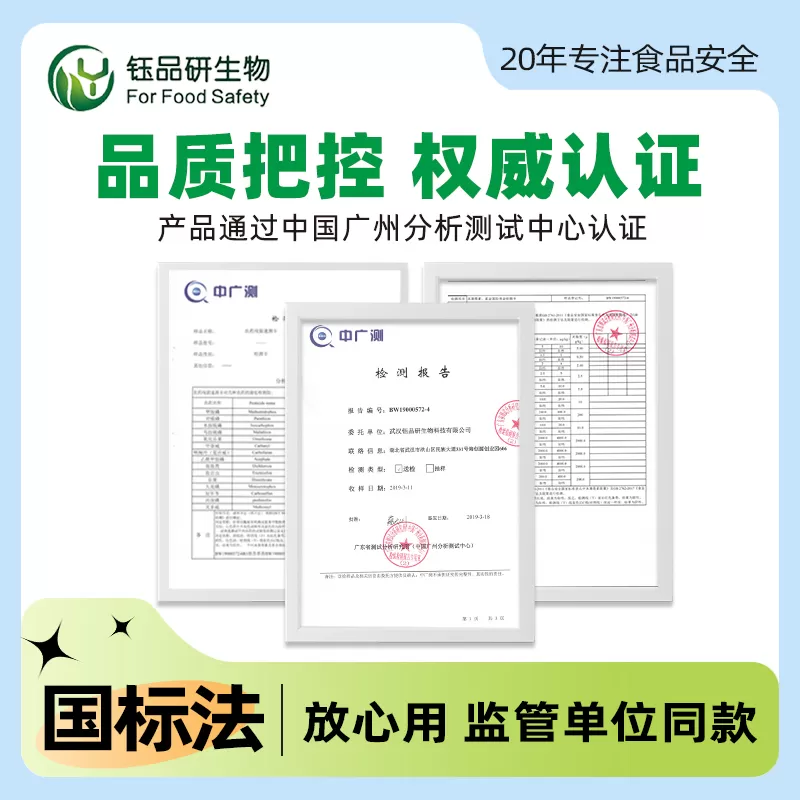
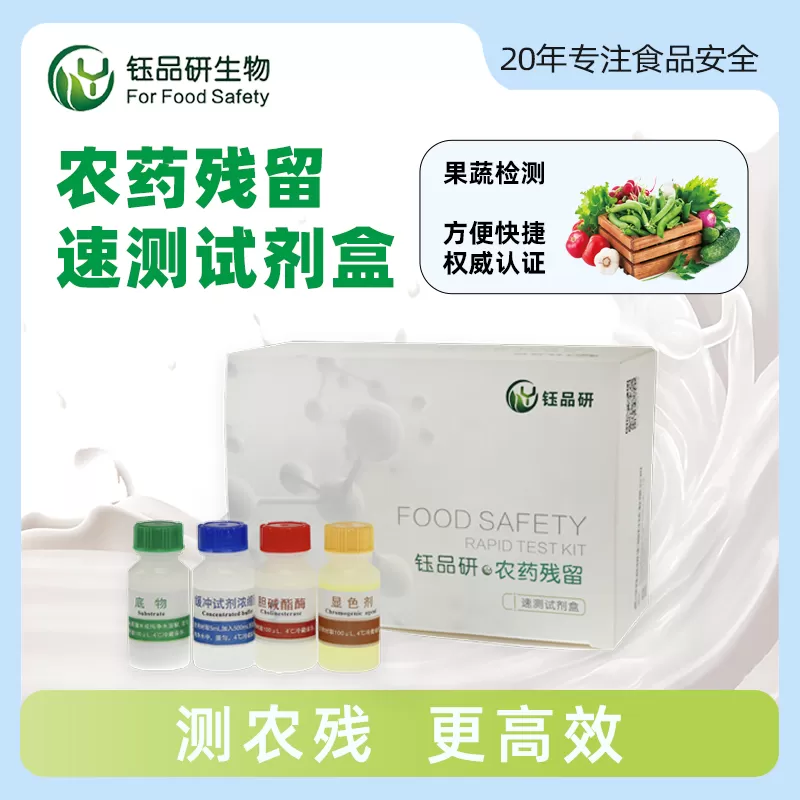
![]()
![]()
![]()


